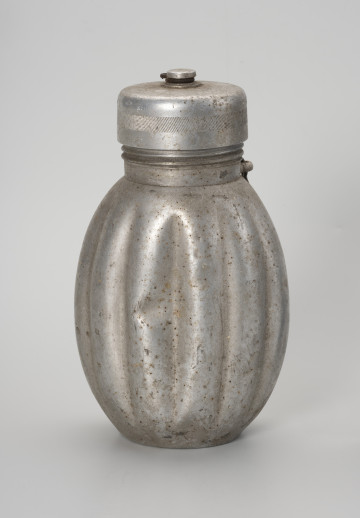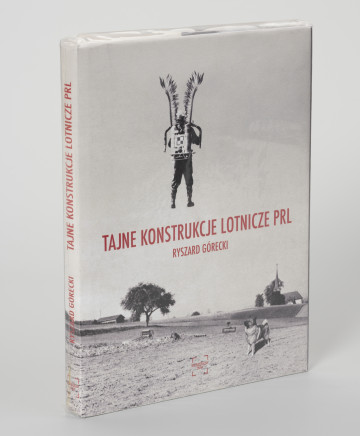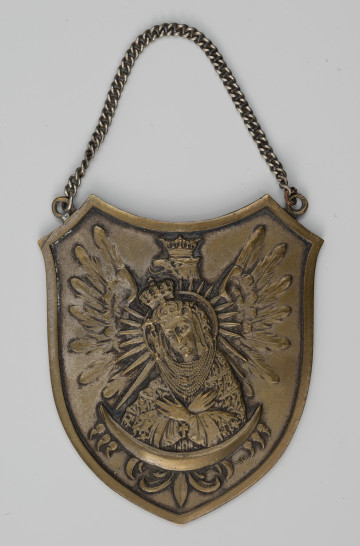
Canteen model no. 37
1938
National Museum in Szczecin
Part of the collection: Independent twenty years of the Second Polish Republic
This letter, written in Bydgoszcz on May 11, 1935 by Colonel Roman Abraham – Commander of the Bydgoszcz Cavalry Brigade, was addressed to the commanders of the regiments included in it. Among those who signed the correspondence, it was possible to confirm the receipt of the correspondence by Lt. Col. Jan Jastrzębski – commander of the 8th Mounted Rifle Regiment and Col. Leon Mitkiewicz-Żółtek – commander of the 2nd Regiment of Rokitian chevaulegers in Starogard Gdański. Abraham begins the letter, written a day before the death of Józef Piłsudski (1867–1935) with concern about his health: "The news about the Marshal's health is bad, so we unfortunately must be prepared for a disaster." The information from the homeland was indeed worrying, because on that day Piłsudski suffered a gastric haemorrhage, which led to his death the very next day. The letter expresses concern for the situation in the country in an emotional tone – Abraham predicted attempts by opponents of the sanation to disrupt the social order after the Marshal's death. The loyalty of the army was to be the guarantee of peace and maintaining the status quo. In correspondence there is a brief instruction in case of attempts to break the existing order. It sounded like an order: "We must oppose all attempts of internal slander – by Germans or by hate-obsessed political loudmouths – as vigorously as possible. – Immediately nip it in the bud with ruthless force so that they can feel for themselves [...] that they cannot disturb law and order in the State with impunity". The colonel also called for support for the administrative authorities, at the same time ordering the maintenance of all preparations undertaken in strict secrecy. Roman Abraham (1891–1976) was dedicated to Piłsudski until his death, a repeatedly awarded soldier of the Second Republic of Poland, and a doctor of law and political skills at the University of Lviv. He distinguished himself during the Polish-Ukrainian war (1918–1919) and the Polish-Bolshevik war (1919-1921). In the interwar period, he held numerous military functions, and from August 1930 to January 1931 he was also a member of the Sejm of the third term. In 1938, he was appointed brigadier general. The presented letter was donated to the museum collection by a resident of Szczecin, whose father-in-law received it after the war as his purchased smoked fish packaging, which is confirmed by a note in pencil above the heading: "I received it as a package in Otwock". Was the letter part of the military archive or was it from Abraham's private collection? How did he get to Otwock? No one knows. General Abraham, distinguished in the September campaign and seriously wounded, spent World War II in a German oflag. When he returned to his homeland, the communist authorities never allowed him to enter military service. Agnieszka Kuchcińska-Kurcz
Author / creator
Object type
correspondence
Technique
printing, manual script
Material
paper, black ink
Origin / acquisition method
donation
Creation time / dating
Owner
Muzeum Narodowe w Szczecinie
Identification number
Location / status

1938
National Museum in Szczecin

2009
National Museum in Szczecin

1936
National Museum in Szczecin
DISCOVER this TOPIC
National Museum in Szczecin
DISCOVER this PATH
Educational path